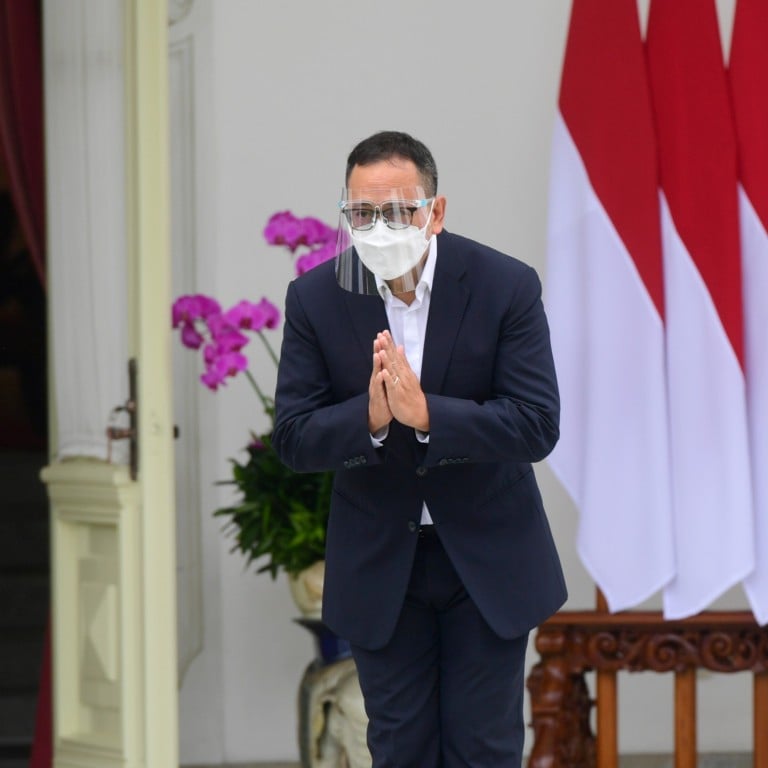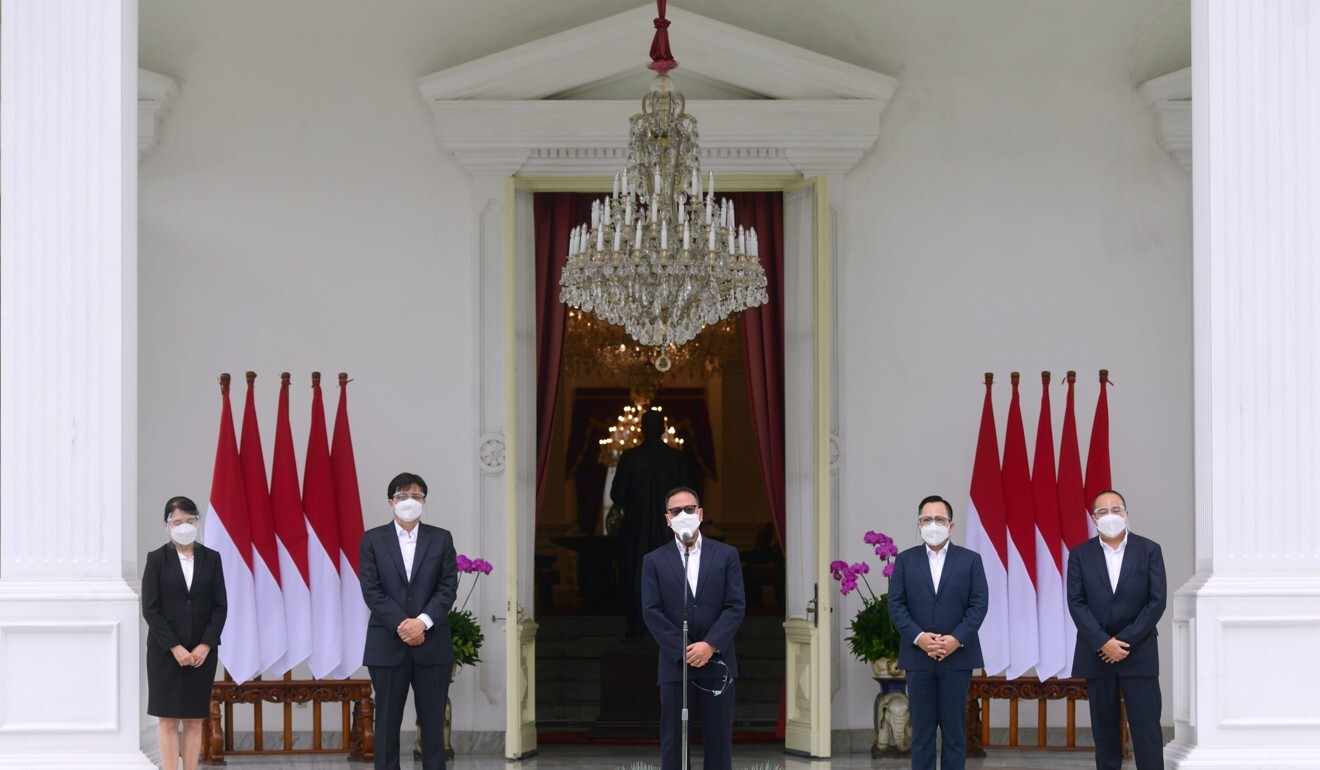
For Indonesia’s sovereign wealth fund, Widodo’s choice of managers supplies needed credibility
- Ridha Wirakusumah, who was named as head of the Indonesia Investment Authority, gets high marks for his integrity and experience
- In the wake of Malaysia’s 1MDB scandal, Indonesian government knew it needed ‘top-of-the-line professional management’ for fund, economist says
For a venture that requires government and private sector teamwork, the pairing seems right. Wirakusumah has also held significant posts in and out of Indonesia for multinationals including GE and private equity firm KKR. Budiman has ample experience inside Indonesia’s complicated and challenging bureaucracy.
Why is China being left out of Indonesia’s US$20 billion wealth fund?
The massive theft that occurred at neighbouring Malaysia’s state-owned 1MDB fund has cast a shadow that the INA wants to avoid. “The president doesn’t want this to be 1MDB,” Wirakusumah said of the INA at the unveiling of the leadership team on Tuesday. “We must have a well-managed sovereign wealth fund.”
Wellian Wiranto, an economist at OCBC in Singapore, wrote: “Given the recent 1MDB fiasco next door, the government knew that having a top-of-the-line professional management team is crucial in boosting the Indonesian sovereign wealth fund’s credibility and hence its funding and execution capabilities.”
The Indonesian entity arguably was misnamed a sovereign wealth fund. There are big differences between it and SWFs in Norway, Singapore and Abu Dhabi. Those were built on huge foreign reserves, or large oil exports and trade surpluses, providing ample funds for overseas investments.

Indonesia’s current situation is entirely different. The country doesn’t have a stockpile of foreign reserves and, unlike the 1970s when it was an OPEC member and received windfalls during the world’s “oil shocks”, when prices spiked, Indonesia is now a net importer of oil.
Hendro Utomo, rating director with Indonesian rating agency Pefindo, told a seminar in late 2020 that the fund is meant to provide “more organised financing” for state-owned enterprises, some of which have aggressively borrowed in recent years and now face a “very challenging situation”.
Initial plans for an Indonesian SWF predate Covid-19, as it was originally part of a massive, controversial omnibus law on job creation drafted in late 2019.
The original idea was that it would be an asset manager, bringing in long-term capital from overseas investors and combining those funds with domestic seed money of about $5 billion from the state budget and profitable state-owned enterprises. Widodo hopes the fund can eventually hit US$100 billion.

02:02
Indonesia’s ‘silver people’ strive to make a living
Details of how the INA will in fact be run still have not been released, but officials have suggested it will function more like a mutual fund, with thematic funds investors can choose. The first theme to be struck will be tollways, according to Wirakusumah.
Wiranto of OCBC suggests that the INA is “best thought of as a sovereign-backed fund with a private equity structure”.
Foreign funds and national development agencies, including the Japan Bank for International Cooperation and Canada’s Caisse de Depot et Placement du Quebec, have shown some interest in investing in the INA, but these are basically MOUs, and there is no guarantee of actual investment.
In late 2020, after the US election, Indonesia’s powerful investment minister, Luhut Panjaitan, received an expression of interest worth US$2 billion from the US International Development Finance Corp. – then run by a college friend of Donald Trump’s son-in-law Jared Kushner – but now that agency head is gone and there is no certainty President Joe Biden’s administration will support the investment.
As Widodo kicks off Indonesia’s vaccine drive, a shot for ‘influencer’ backfires
The managers of INA can expect to face political pressures in Indonesia, as cash-strapped construction and infrastructure companies – who have to assume the state budget is going to remain tight – compete for INA funds.
If the INA managers succeed in getting the fund running and growing, Indonesia could get much-needed long-term capital inflows, which could help stabilise the country’s sometimes volatile currency, the rupiah. That alone would be a substantial contribution to the economy.
Separate from a growth boost from eventually finishing investment projects, the Wirakusumah team’s success in attracting foreign funding would, as Wiranto put it, “go a long way in reducing Indonesia’s dependence on footloose portfolio funding flows”.

